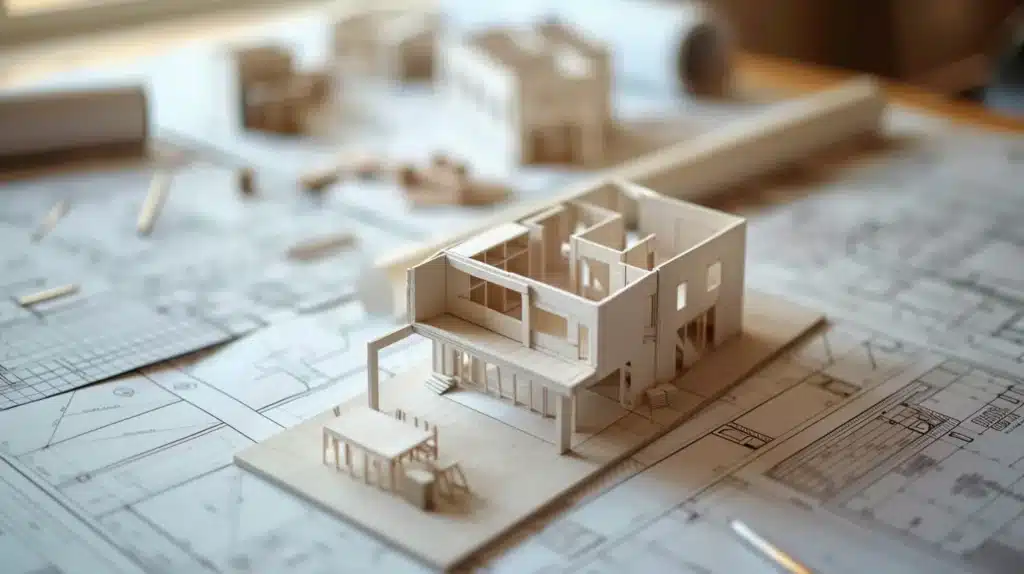When embarking on a construction project, selecting the right general contractor is crucial to ensuring the process runs smoothly, stays within budget, and meets your quality expectations. This guide will help you navigate the essential steps in finding and choosing the perfect general contractor.
Understand the Role of a General Contractor
Key Responsibilities in Construction Projects
A general contractor acts as the project leader, overseeing all aspects of the construction process. Their responsibilities include coordinating subcontractors, managing schedules, ensuring compliance with building codes, and maintaining safety standards. By handling various tasks such as plumbing, electrical work, and construction management, general contractors ensure that the project progresses efficiently.
Distinguishing General Contractors From Subcontractors
While a general contractor manages the overall project, subcontractors specialize in specific trades like carpentry, HVAC, or roofing. Understanding this difference can help you better assess the expertise needed for your project and ensure proper oversight.
Impact on Project Success
The selection of a qualified general contractor can significantly influence the project’s outcome. An experienced contractor reduces risks, manages unforeseen challenges, and keeps the project on schedule and within budget.
Assess Your Construction Needs
Define Your Project Scope and Objectives
Before searching for a contractor, outline the details of your project. This includes the type of build or renovation, specific design elements, and your end goals. Clear objectives will guide both you and your chosen contractor.
Determine Budget Constraints
Understanding your budget limitations is essential. Factor in costs such as materials, labor, permits, and overhead. Allocating funds for unexpected expenses can prevent financial stress during the project.
Establish a Project Timeline
A realistic timeline should align with your project’s scope. Discussing timelines early helps identify potential time constraints and ensures the contractor has the capacity to meet deadlines.
Identify Required Skills and Expertise
Different projects require varied expertise. Whether it’s a simple home improvement or a complex commercial construction, ensure that the general contractor has experience relevant to your specific needs.
Identify Potential General Contractors
Use Industry Networks and Recommendations
Start by asking for referrals from friends, colleagues, or industry professionals. Trusted recommendations can lead you to reputable general contractors.
Conduct Online Research and Read Reviews
Online resources and review platforms provide valuable insights into contractor performance, customer satisfaction, and project outcomes. Focus on feedback related to communication, management skills, and project results.
Attend Construction Expos and Events
Networking at industry expos introduces you to contractors and their work portfolios. This firsthand exposure helps you gauge their professionalism and expertise.
Evaluate Local and National Contractors
Local contractors may offer quicker response times and familiarity with local building codes. National firms, on the other hand, may bring more resources and a broader range of experience.
Evaluate Credentials and Experience
Examine Years in Business and Track Record
A contractor with years of experience often has proven reliability and a strong project portfolio. Longevity in business can also indicate stability and trustworthiness.
Confirm Expertise in Similar Projects
Ask for examples of completed projects that mirror your own in complexity and size. This ensures the contractor has the necessary know-how.
Check Professional Affiliations and Memberships
Memberships in organizations like the Associated General Contractors of America (AGC) or other local trade associations demonstrate a commitment to industry standards.
Verify Continuing Education and Training
Keeping up with training and certifications reflects a contractor’s dedication to staying informed on the latest construction techniques and regulations.
Check Licenses and Certifications
Verify State and Local Licensing Requirements
Each state, such as California, has specific licensing requirements. Confirm that your contractor has an active contractor license to operate in your location.
Confirm Contractor Certifications
Certifications can indicate expertise in specialties like green building or advanced project management.
Ensure Compliance With Building Codes
Make sure your contractor understands and complies with local building regulations and safety policies to avoid legal complications.
Review Past Projects and References
Visit Completed Project Sites
Seeing completed work in person gives you a clear picture of a contractor’s quality and attention to detail.
Contact Previous Clients
Ask former clients about their experiences, focusing on the contractor’s communication, problem-solving abilities, and adherence to timelines.
Assess Quality of Workmanship
Evaluate whether past projects meet your standards for durability and craftsmanship.
Compare Bids and Proposals
Understand Cost Estimates
Request detailed cost estimates that outline labor, materials, and overhead fees. Understanding these details helps you identify fair pricing.
Analyze Scope of Services Offered
Review the services covered in the bid, such as construction management, subcontractor coordination, and site cleanup.
Identify Inclusions and Exclusions
Ensure you know what’s included and excluded in the contract to avoid unexpected costs.
Negotiate Terms and Conditions
Discuss terms like payment schedules, project milestones, and penalties for delays.
Consider Communication and Compatibility
Evaluate Responsiveness and Availability
Timely responses to inquiries and availability for meetings indicate a contractor’s commitment to the project.
Assess Communication Styles
A good contractor should keep you informed throughout the construction process, making sure you’re comfortable with the project flow.
Understand Project Management Approach
Understanding how a contractor manages the project helps set expectations and keeps everything on track.
Verify Insurance and Bonding
Confirm Liability Insurance Coverage
Ensure that the contractor holds general liability insurance to cover potential property damage or accidents on-site.
Understand Surety Bonds
Bonds act as a financial safety net in case the contractor fails to complete the project.
Protect Against Potential Risks
Verify policies related to workers’ compensation, unemployment insurance, and other relevant areas to minimize risks.
Make the Final Selection With Confidence
Trust Your Instincts and Judgment
After reviewing credentials, bids, and communication styles, go with the contractor who aligns best with your needs and instincts.
Set Clear Expectations for the Project
Lay out roles, responsibilities, and timelines in the contract to ensure transparency and efficiency from the start.
Choosing the right general contractor requires careful planning, thorough vetting, and clear communication. By following these steps, you can select a professional who delivers quality results while minimizing stress and maximizing your investment.





